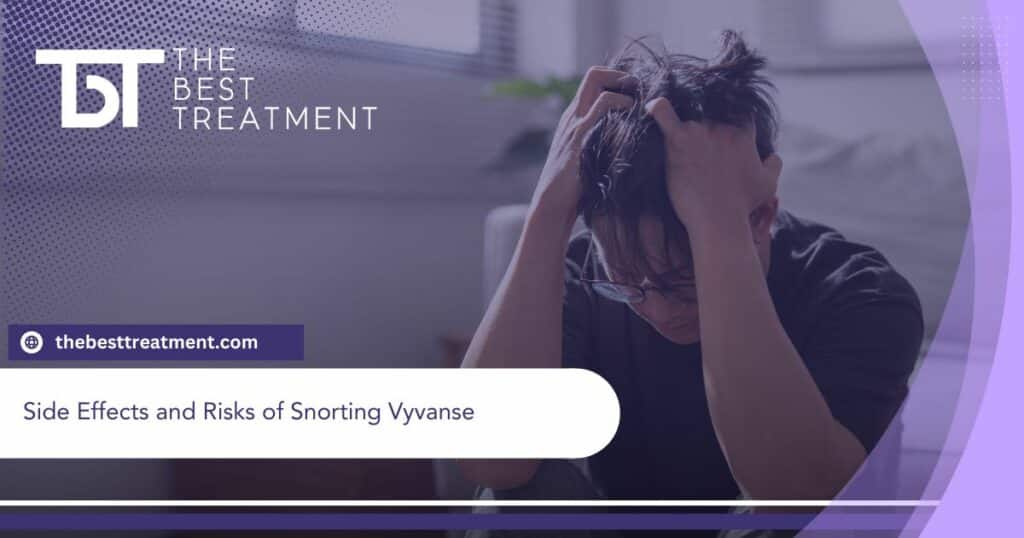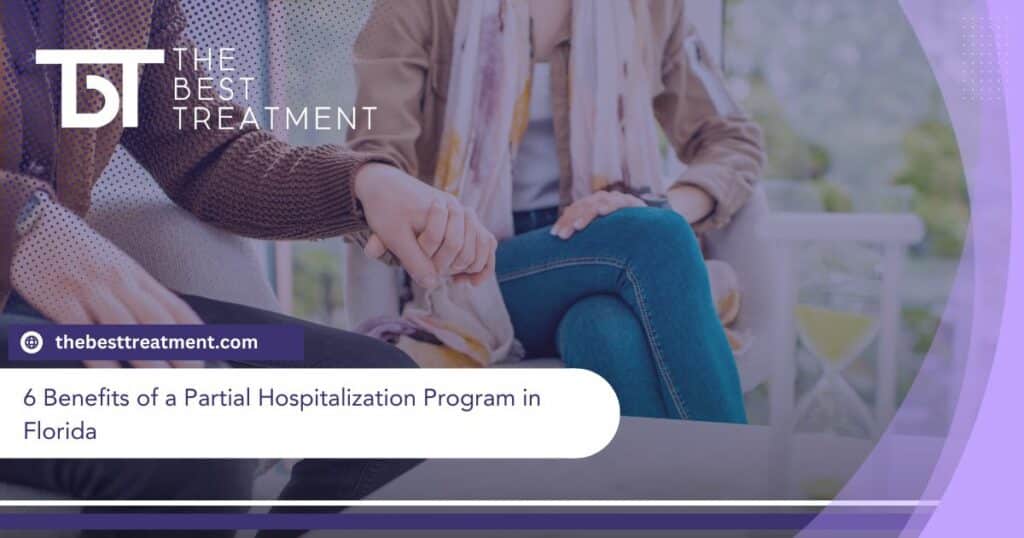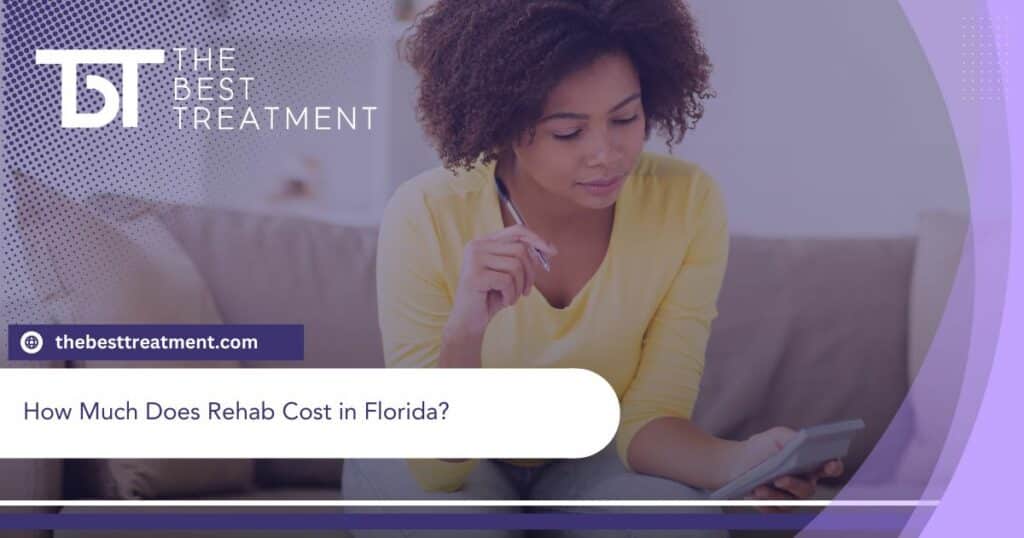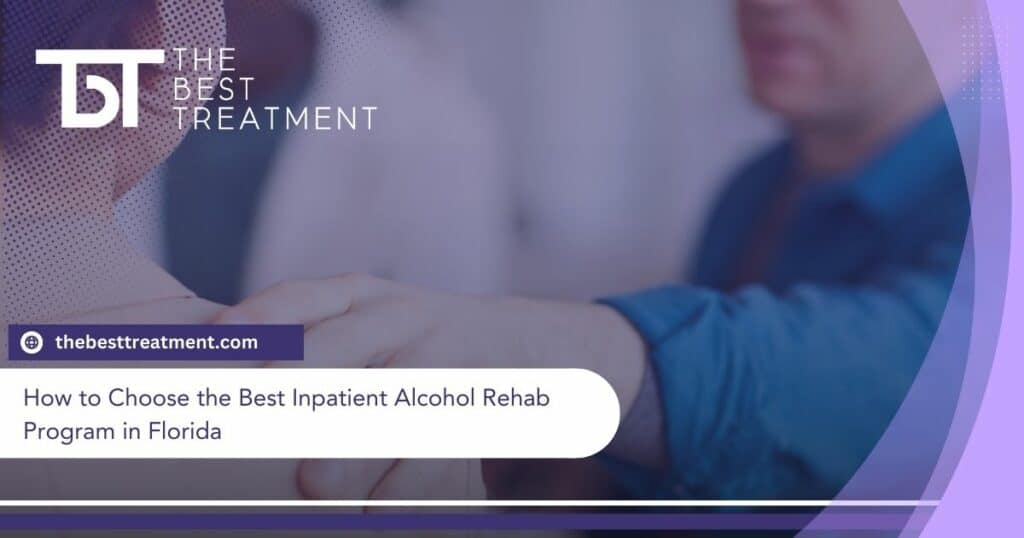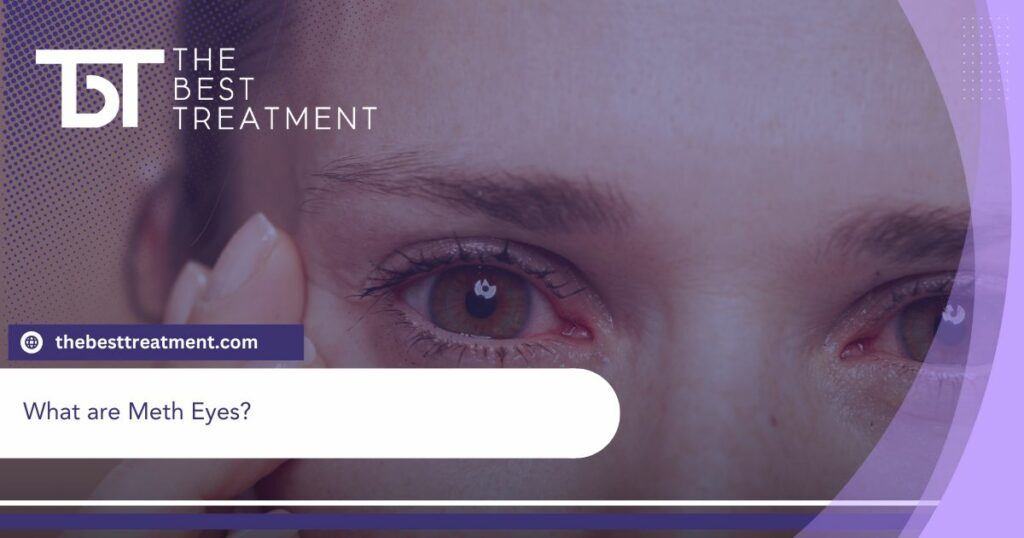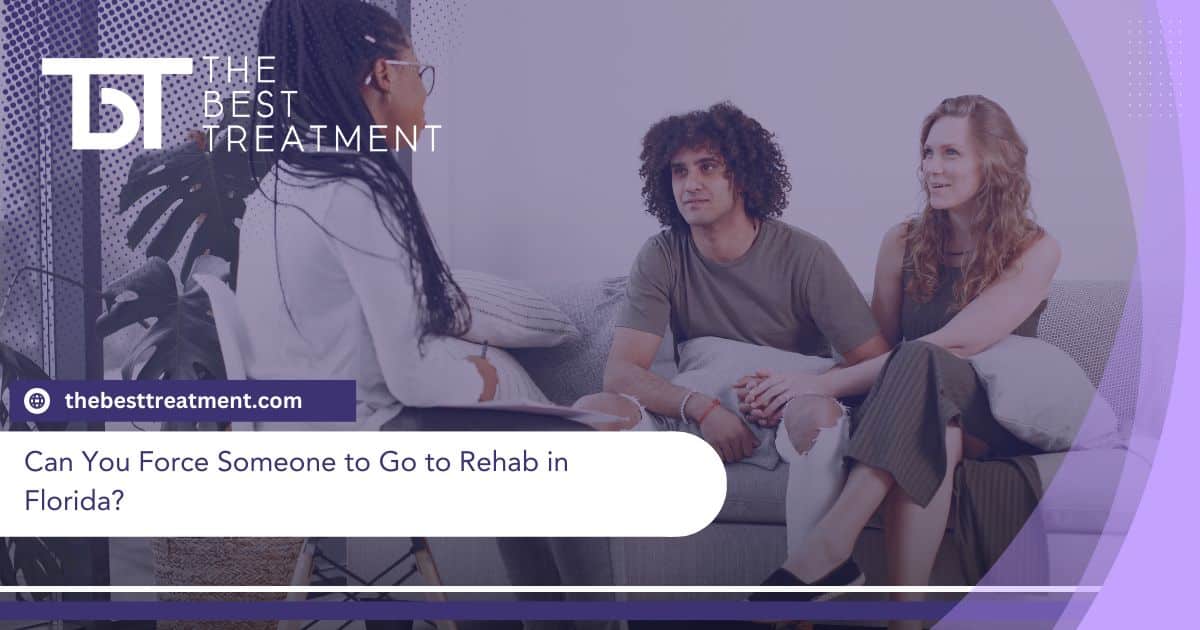Table of Contents
When someone you love is struggling with addiction, it’s natural to want to do anything you can to help them and get them to seek treatment. After all, it can be very frustrating and painful to watch a loved one refuse rehab, time and time again, while their addiction continues getting worse. At a certain point, many families find themselves wondering whether or not they can force their loved one to go to rehab.
The question of whether you can force someone to go to rehab in Florida is a complex and sensitive one. Fortunately, Florida is one of a few states that makes it easy to force someone who needs treatment to go to a rehab center for an evaluation.
Forcing Someone into Rehab: Is it Legal in Florida?
Under the right circumstances, yes, you may be able to force someone into rehab in Florida. Involuntary commitment to addiction treatment in Florida is typically accomplished through the Marchman Act, a state law that allows for the court-ordered assessment and stabilization of individuals who pose a risk to themselves or others due to substance abuse.
Understanding the Marchman Act and How It Works
The Marchman Act, officially known as the Hal S. Marchman Alcohol and Other Drug Services Act of Florida, is a crucial legal framework that allows for the involuntary assessment and treatment of individuals struggling with substance abuse within the state of Florida. It was named after Hal S. Marchman, a former Florida legislator who was passionate about the rights of those struggling with addiction in the state. This law primarily serves to address situations where individuals may pose a danger to themselves or others due to their substance abuse and addiction issues.
Under the Marchman Act, family members, legal guardians, or individuals with direct knowledge of someone’s substance abuse problem can petition the court for an involuntary substance abuse assessment. If the assessment determines that the person needs treatment, the court may order involuntary commitment to a treatment facility. The duration of involuntary commitment varies based on the assessment’s recommendations and the individual situation.
Seeking legal advice and understanding the legal process is crucial before pursuing involuntary commitment. An attorney experienced with the Marchman Act can provide guidance and help you navigate the legal aspects of forcing a loved one to go to rehab in Florida.
Can You Force Someone to Go to Rehab in Florida Using the Baker Act?
The Baker Act, also known as the Florida Mental Health Act, is another important legal framework in Florida, but it deals specifically with mental health issues–not addiction. This act allows for the involuntary examination and temporary detention of individuals who may be a danger to themselves or others due to a mental health crisis, such as depression or psychosis. The Baker Act is not focused on substance abuse but rather addresses psychiatric emergencies, severe emotional disturbances, and the risk of self-harm or harm to others, however, these issues often co-occur with addiction.
Under the Baker Act, individuals can be involuntarily assessed and, if necessary, held for a period for evaluation and stabilization in a professional mental health facility. If a person struggles with a co-occurring substance abuse problem, involuntary treatment may be able to diagnose and treat these issues, as well. Not only that but improving mental health can be a valuable step toward addiction recovery. But if you are focused solely on getting treatment for someone struggling with substance abuse as a primary issue, the Marchman Act is a more suitable option for involuntary commitment.
Is it a Good Idea to Force Someone to Go to Rehab?
While the Marchman Act offers a legal framework for involuntary commitment, it raises significant ethical questions–like is it really a good idea to force someone to go to an addiction treatment facility?
Forcing someone into rehab can strain relationships and may not always lead to lasting recovery. Individuals who are involuntarily committed to a rehab center may become angry, resentful, or even hostile, but simply getting them to talk to a professional is a major step. However, even going to rehab voluntarily can end in a relapse if individuals do not follow through with their aftercare.
If you can’t get your loved one to go to rehab using an intervention or other methods, involuntary commitment may be the only option to keep them safe. In many cases, simply going to rehab, talking to professionals, and witnessing other peoples’ recoveries can be enough to start paving the way toward long-term sobriety.
Find Addiction Help in Florida for a Struggling Loved One
Ultimately, the decision to force a loved one to go to rehab should be guided by a deep understanding of addiction, empathy, and a commitment to supporting your loved one on their journey to recovery. For the best outcomes, you’ll need to support your loved one both during rehab and after it.
At The Best Treatment, we can show you or your loved one the path to successful recovery in a controlled and safe environment. Located just a mile from the beach in Lantana, Florida, our premier drug and alcohol rehab integrates a calming atmosphere into our evidence-based therapies.
With an intimate setting and a 3:1 client-to-staff ratio, you can rest assured that you or your loved one is receiving the highest quality of care. To learn more about our Florida rehab programs or to get help for an addicted loved one, please contact us today.
Medically Reviewed: September 25, 2019

All of the information on this page has been reviewed and verified by a certified addiction professional.





